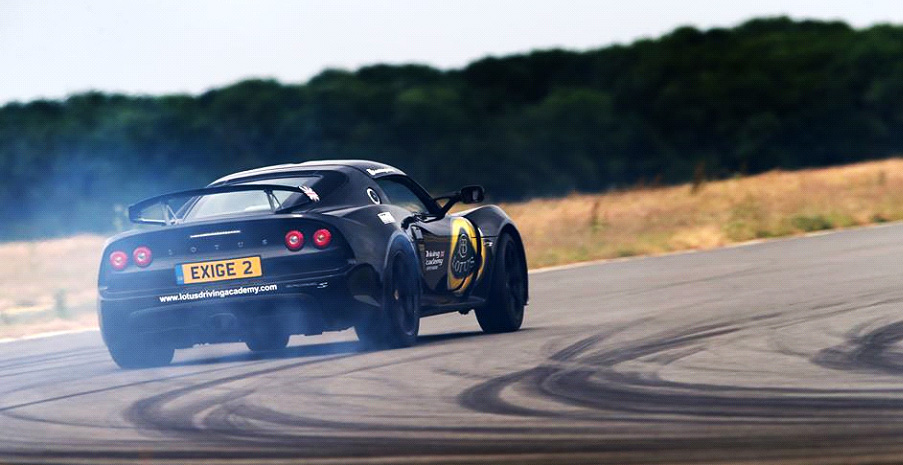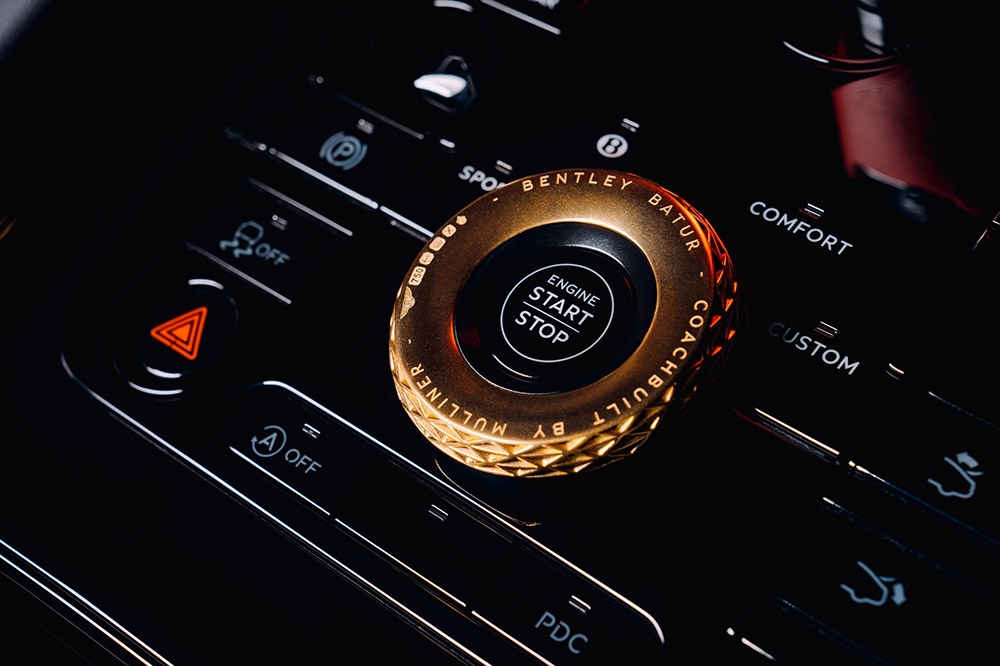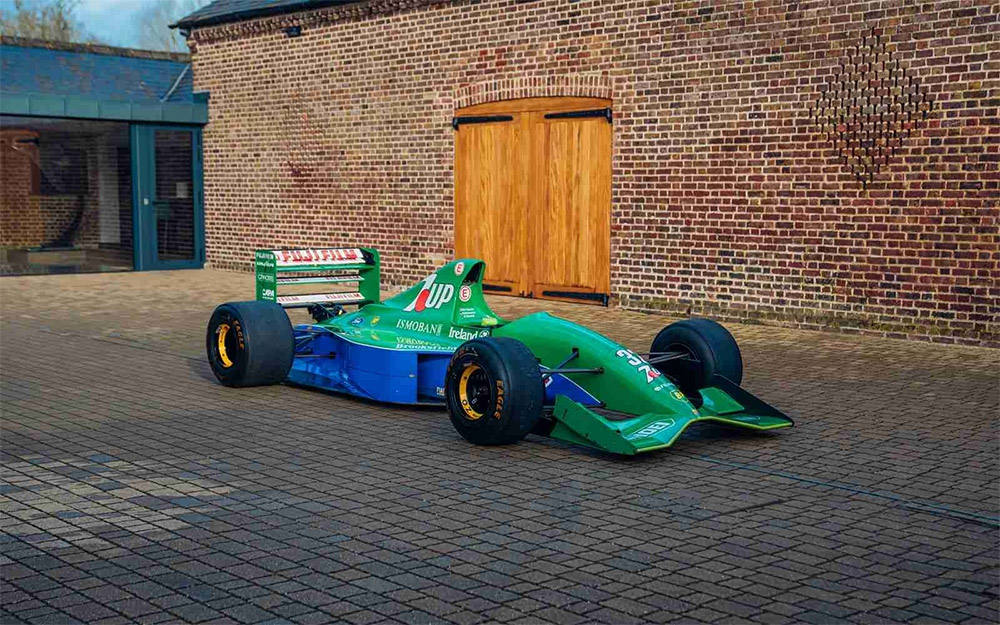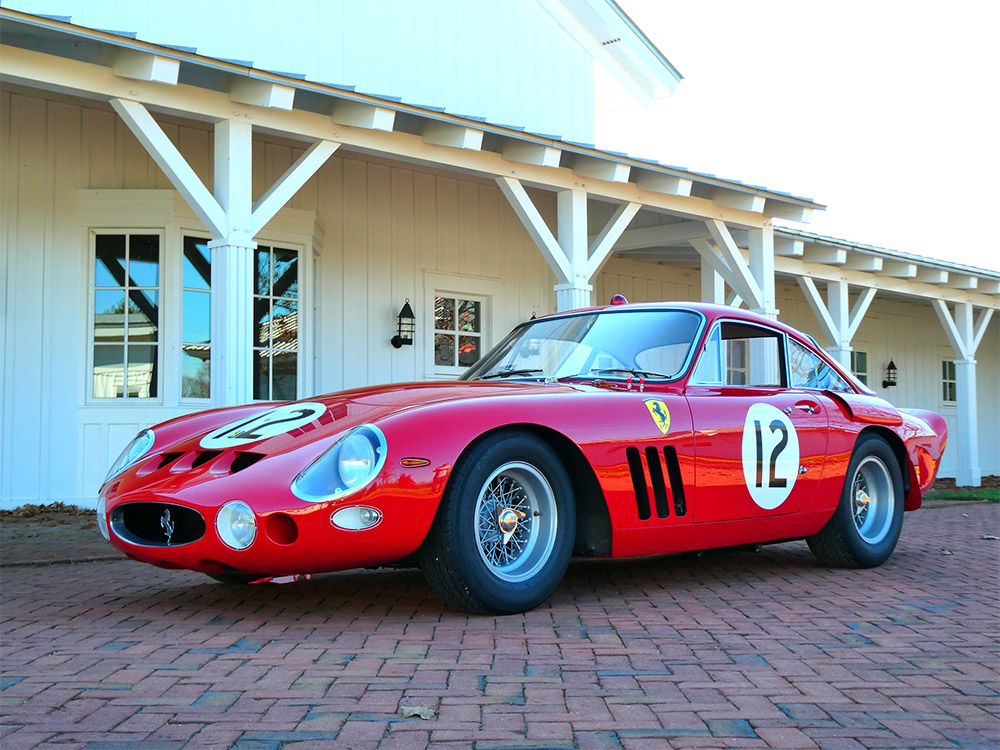Bentley Motors has introduced 3D printed solid gold in the exclusive Mulliner Batur – the first time such a ground-breaking process is believed to have been used in the automotive industry. The ‘additive manufacturing’ (AM) technique will add up to 210 grams of 18ct yellow gold to the coachbuilt coupe, the fastest Bentley in the company’s 103-year history.
The W12-engined Batur is restricted to just 18 examples, all of which have already been sold to Mulliner clients at £1.65m each (excluding taxes and options). The optional, 3D printed gold includes key driver touch points, such as the Charisma Dial, encircling the start/stop button and used to change driver modes. The centrepiece of an exquisite cabin, the dial complements the design of the Batur front grille. Gold is also applied to Bentley’s iconic Organ Stop vent controls on the dashboard, as well as a gold insert marker on the steering wheel itself.
Bentley Mulliner has worked with renowned goldsmiths Cooksongold to craft the unique Batur parts. A member of the Heirmerle + Meule Group, Cooksongold is based in the historic Jewellery Quarter of Birmingham, England, where jewellery has been made for centuries. The special collaboration highlights Bentley’s ability to combine new, advanced manufacturing technologies with more traditional materials and finishing techniques.
All the sustainably sourced gold is 100 per cent recycled from old jewellery, ground into a fine powder needed for the 3D printing technique. Recycling ensures there is no environmental impact from mining for new precious metals. It also reflects Bentley’s commitment to a more sustainable future and is in line with the company’s Beyond100 strategy, to be end-to-end carbon neutral by 2030.
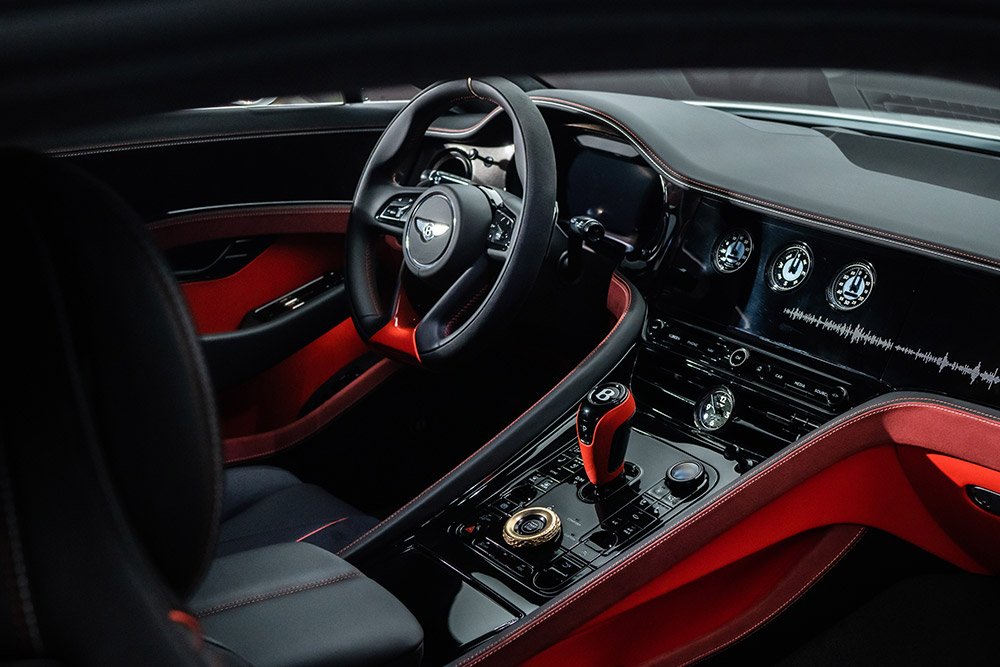
Every 3D gold part in the Batur is digitally designed using CAD models, before a printing process with laser melting printers. Each is then hand finished by skilled artisan jewellers, using traditional techniques to achieve the polish and quality that is synonymous with a Bentley.
All parts produced for the Batur are hallmarked in Birmingham’s Jewellery Quarter as a sign of having solid material authenticity. Additionally, any parts manufactured in 2022 also receive the Jubilee hallmark, celebrating the late Queen Elizabeth II’s Platinum Jubilee year.
In February, Bentley committed a further £3 million investment to double AM capacity at the Crewe factory, converting 3D CAD models into physical parts. Future applications will facilitate more low volume manufacturing components and bespoke customer personalisation – including the pioneering use of 3D printed gold in a range of new generation models.
Bentley’s legendary 6.0-litre, twin-turbocharged W12 engine generates more than 740 PS in the Batur, with chassis technology that includes eLSD, four-wheel steering and 48V electric active anti-roll bars to match the performance. The coupe offers an endless array of options, including parts crafted in titanium, sustainable Natural Fibre composites and even low-carbon leather sourced from Scotland. The coupe’s new design DNA also shows the direction for future Bentley BEVs (battery electric vehicles).
Dr. Matthias Rabe, Member of the Board for Research and Development at Bentley Motors, said: “Bentley’s approach to additive manufacturing is industry leading, evident through our pioneering use of a luxury metal in the design and development process of the Batur. One of the key benefits is that it is efficiency led, cutting down on the cost and complexity of a myriad of jobs but maintaining the value of a rare resource.
“As Bentley embraces an exciting future, we see huge potential in advanced, innovative technologies. Processes such as 3D printed gold will be a springboard that allows our customers an even greater ability to personalise, further enhancing the individualisation programme offered on every car.”

